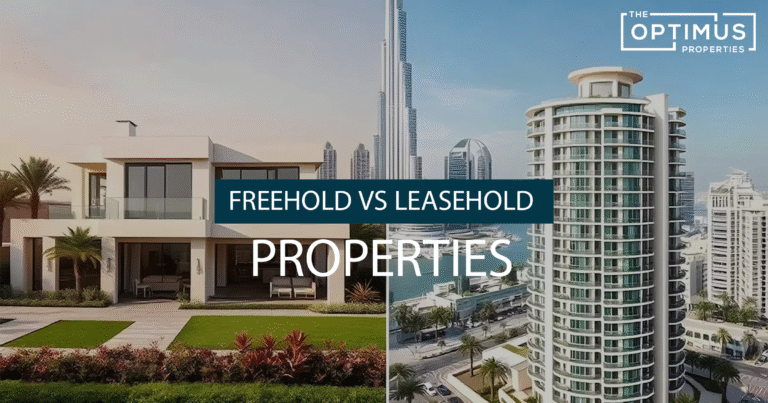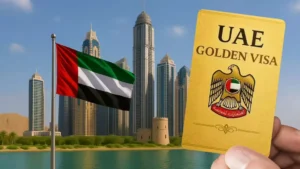All about leasehold property ownership in Dubai
With its iconic skyscrapers and booming investment scene, leasehold property in Dubai has become a smart option for both locals and foreign investors. While leasehold properties offer affordability and flexibility, it’s important to understand how leasehold ownership in Dubai works, how it differs from freehold ownership, and what legal implications and benefits it brings especially for expats.
This in-depth guide covers leasehold property laws in Dubai, benefits for expatriates, the renewal process, and a leasehold vs. freehold comparison to help you make informed decisions.
What Is a Leasehold Property in Dubai?
Leasehold ownership allows a person typically a foreigner to buy the right to use and occupy a property for a set period (up to 99 years). However, the land itself remains owned by the freeholder. Through a lease agreement, the buyer (lessee) has the legal right to live in, lease out, or sublet the property.
Leasehold arrangements are common in specific designated areas of Dubai such as:
- Jebel Ali
- Al Jaddaf
- Ras Al Khor
- Parts of Downtown Dubai
Leasehold Property Laws in Dubai: Key Legal Insights
Dubai’s leasehold legislation protects both buyers and landlords. Key legal aspects include:
- Mandatory Registration: Leases longer than 10 years must be registered with the Dubai Land Department (DLD).
- Right to Renew: Lessees can renegotiate lease terms at the end of the contract period.
- Renovation Approval: Major modifications require written consent from the freeholder.
Escrow Protection: For off-plan properties, buyer funds are secured via escrow accounts.
Can Expats Own Leasehold Property in Dubai?
Yes. Under Regulation No. 7 of 2006, expats are legally allowed to purchase leasehold property in designated zones. These zones are designed specifically for non-UAE residents, offering a pathway to long-term living and investment.
Advantages of Leasehold Property for Expats in Dubai
1. Lower Entry Costs
Compared to freehold properties, leasehold units are more affordable, making them a great option for expats looking to invest without massive upfront capital.
2. Shared Maintenance Costs
Most leasehold developments have centralized maintenance, lowering individual responsibility and ongoing expenses.
3. Government Oversight
Dubai ensures:
- Transparency in lease terms
- Dispute resolution mechanisms
- Escrow protection for financial security
4. Income Potential
Located in high-demand areas, leasehold properties often yield strong rental returns ideal for expats seeking ROI without long-term ownership.
5. Flexibility
Leasehold offers short- to mid-term investment potential, which is ideal for those not yet ready to commit to a permanent residence or legacy planning.

Leasehold vs Freehold in Dubai: A Comparison
| Feature | Leasehold | Freehold |
|---|---|---|
| Land Ownership | No (land remains with freeholder) | Yes (full ownership of land and property) |
| Duration | Up to 99 years | Permanent |
| Modification Rights | Limited; requires approval | Full control |
| Entry Cost | Lower | Higher |
| Expat Eligibility | Yes (in leasehold zones) | Yes (in freehold zones) |
| Renewal Required? | Yes | No |
Verdict:
- For short-term or budget-focused investors, leasehold offers more flexibility.
- For long-term residency or inheritance planning, freehold may be more suitable.
Leasehold Agreement Renewal in Dubai: What You Need to Know
When your lease period nears expiration, renewal is typically straightforward—but preparation is key.
Steps to Renew:
- Review your existing lease contract
- Contact the freeholder or developer
- Negotiate new terms (duration, fees, rights)
- Draft and notarize the new agreement
- Register the renewed lease with the DLD
Proper renewal ensures continued legal residency and use rights.
Where Can You Buy Leasehold Property in Dubai?
Designated leasehold zones include:
- Al Jaddaf
- Jebel Ali
- Ras Al Khor
- Dubai Silicon Oasis
- The World Islands
These areas are regulated under Dubai’s property laws, offering safe, legal investment options for expats and residents alike.
FAQs
1. Can expats own leasehold properties in Dubai?
Yes, expats can own leasehold properties in designated zones for up to 99 years.
2. What are the benefits of leasehold for expats?
Lower upfront cost, shared maintenance, government protection, and rental income potential.
3. What happens when the lease expires?
You can renew the lease by renegotiating terms and registering a new agreement.
4. Leasehold vs Freehold—Which is better?
It depends on your goals. Leasehold is ideal for flexible, short-term plans; freehold suits long-term stability.
5. Can I sell a leasehold property in Dubai?
Yes, resale is allowed (subject to developer policies and remaining lease term).

 GET IN TOUCH
GET IN TOUCH





